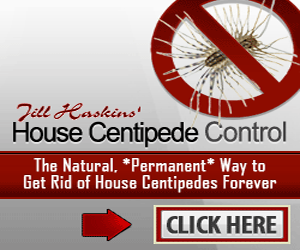Garden Pests
A pest is defined as a living organism which causes damage directly or indirectly to crop plants domesticated animals or humans. Garden pests are organisms which are actively causing damage to flora in gardens. They do so by employing a variety of methods and the damage they cause may not always be apparent. Some pests such as caterpillars and leaf miners defoliate gardens by feeding on the leaves and stems of garden plants and leaving behind skeletonized remains.
Insects like aphids and whiteflies suck plant juices and leave behind withered stems and trunks. Some garden pests transmit plant viruses and other disease causing pathogens to their host while feeding on it. Such plants experience growth deterioration and are likely to die. Mollusks, birds, rodents and even larger mammals are identified as garden pests when they cause damage to your garden. However in most cases insects are the primary type of garden pests and the damage they cause is often extensive owing to their rapid growth and reproduction rates. If not monitored and controlled insect pest populations can increase dramatically over a short period and can cause irreversible damage to your garden. Early detection and control are the best ways to prevent and counteract the activity of garden pests.
There are a number of ways to control garden pests. The most effective methods are chemical and biological control methods. The first step in keeping your yard and garden free of pests is to keep it clean. Weeds, pet droppings, rotting leaves are among the living and breeding grounds of some of the common pests. By removing the debris from your garden, you eliminate one more attraction for pests.
Biological control methods are an environmentally sound way of controlling garden pests and there are simple approaches to this type of pest control. Plants like basil, garlic, rosemary and nasturtium are known to deter a wide variety of garden pests. These plants can be strategically planted near flowerbeds and fruit trees to deter specific garden pests.
Another effective method is introducing natural predators of garden pests to your garden. Ladybirds, mantises, toads and birds are natural predators of insect pests and you can make your garden a hospitable environment for these biological control agents. Ladybirds and praying mantis eggs are commercially available but you should gradually introduce them or risk another population crisis. Birdhouses and birdbaths will attract martins, bluebirds, sparrows and other birds whose diet consist mainly of insects. Learn which birds consume which insects since some birds will consume beneficial insects as well.
Chemical control methods involve the use of pesticides and fungicides. When used properly these do a very good job of protecting plants against pests and fungi, however due to their toxicity they also carry the potential to harm people, pets and other beneficial organisms in your garden. It is important to be aware of the target pest and select the appropriate pesticide and apply it at the right time in the correct quantity avoid unwanted damage. Speak to a gardening or pest control expert and acquire assistance when searching for the correct pesticide for your garden pest problem.
The concept of integrated pest management (IPM) has proven to be a useful, efficient and environmentally sound method of pest control. This method aims to manage pests and not eradicate them as it realizes that control methods may also harm potentially beneficial organisms in the environment. Furthermore totally eliminating the pest can cause disruptions in the food web of an ecosystem and can damage the ecosystem. Consult an IPM expert before introducing these methods to your garden.
Garden pests are unavoidable in most cases and they maybe present regardless of the measures taken to eliminate them. It is important to realize that only with proper control and management can you minimize the damage caused by them and enjoy the fruits of your labor.



